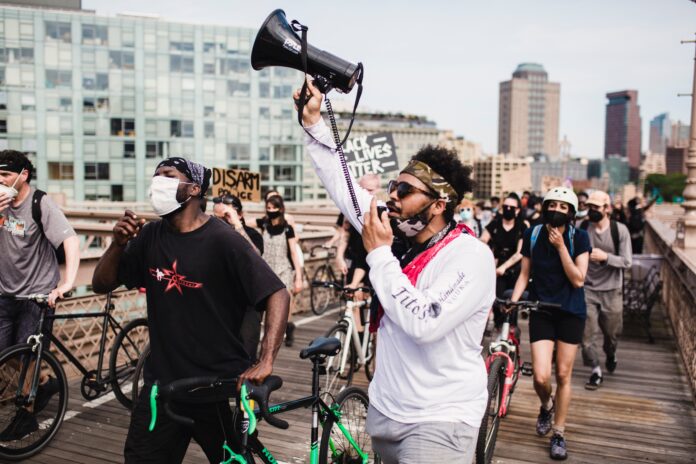
By
On May 1, 1886, in cities across the United States, workers from nearly every segment of the workforce didn’t show up for work. Instead, they spent that Saturday demonstrating in the streets and city squares for an eight-hour day.
The largest demonstrations took place in Chicago, where tens of thousands of workers — the majority immigrants — spilled into the streets, and by doing so, they halted the means of production and supply chains. They chanted, “Eight hours for work, eight hours for rest, eight hours of what we will.”
The striking workers were optimistic. They believed this was the time they could claw back some of the considerable power held by the industrial and financial capitalists and that they could improve their dismal working conditions.
The 1880s was an era of tremendous inequality, and this was a moment to restore balance to the economic scales, to seize the economic agenda from the grip of the wealthy few and place it in the hands of the workers whose labor created that wealth.
But the ruling classes did not yield to the workers’ demands, and then on the fourth day of the strike, a single bomb was thrown into the ranks of the Chicago police and set off a wave of hysteria that included police assaulting and shooting the striking workers, violations of civil liberties of immigrants and union organizers, and a sham trial and public hanging of four of the movement’s leaders.
The tragedy at Haymarket Square and the subsequent trial was front page news in America and around the world. And it had a chilling effect on union organizing, and on attitudes toward immigrants and the working class.
But the Haymarket massacre also ended up galvanizing the labor movement both here and globally.
Even before the events at the Haymarket, and in the face of virulent racism, Black workers had long participated in and led labor strikes and collective action to gain better treatment on the job.
Atlanta washerwomen led a campaign to organize the city’s woefully underpaid and undervalued laundresses, and in 1881, they held a general strike for a living wage and protections on the job and won.
We can only vanquish oppression in all its forms when we stand together.
And in 1892, Black and white workers came together during the General Strike in New Orleans. In their fight for better wages, a shorter workday and closed union shops, they brought local business to a halt and proved that they were essential to the city’s economy.
Despite the attempts of the business owners to use racism to divide the workers, they remained united and won many of their demands.
That tradition of solidarity lives on, and today, more than 100 countries celebrate the first day of May as International Workers’ Day. Working people and their unions around the world take action to show that injustice anywhere is a threat to justice everywhere.
It is an opportunity for workers in the United States to recommit ourselves to solidarity among all working people. And a reminder that we can only vanquish oppression in all its forms when we stand together and speak out and march forward for the economic rights and dignities that all working people deserve.
This isn’t just a labor issue. It’s a social and racial justice issue.
All working people are entitled to living wages, basic rights, and dignity on the job — regardless of who we are, where we were born, what language we speak, and what faith we practice.
The income and racial inequality gap is the largest it has been in 50 years. The balance of power has shifted completely to corporations, and the labor laws designed to empower and protect working people have been intentionally weakened over the last 80 years, and it’s become harder for people to improve their working conditions.
That’s why we are fighting so hard to fix our broken and outdated labor laws and win passage of the Protecting the Right to Organize Act.
But this isn’t just a labor issue. It’s a social and racial justice issue.
Equity and opportunity are baked in unions. Union workers earn 10% more than their nonunionized peers, and Black workers represented by a union are paid 13% more than their nonunionized peers.
But the union difference is more than higher wages. Union members are more likely to have access to employer-sponsored health care and retirement benefits. Workers covered by a collective bargaining agreement are far more likely to have a guaranteed defined benefit pension plan that provides a lifetime of income in retirement. Unions also play a significant role in reducing racial resentment.
Unions advocate for a fair immigration system, and an economy that brings workers out of the shadows and protects our rights to stand up to abusive employers.
And we advocate for trade policies that strengthen protections and wages for working people across all borders.
The fight for justice is a global one. It touches every issue affecting working people. And it will only advance if we join together in our places of work, end systemic racism in our society, and catalyze meaningful change for all workers. And together, we will.


